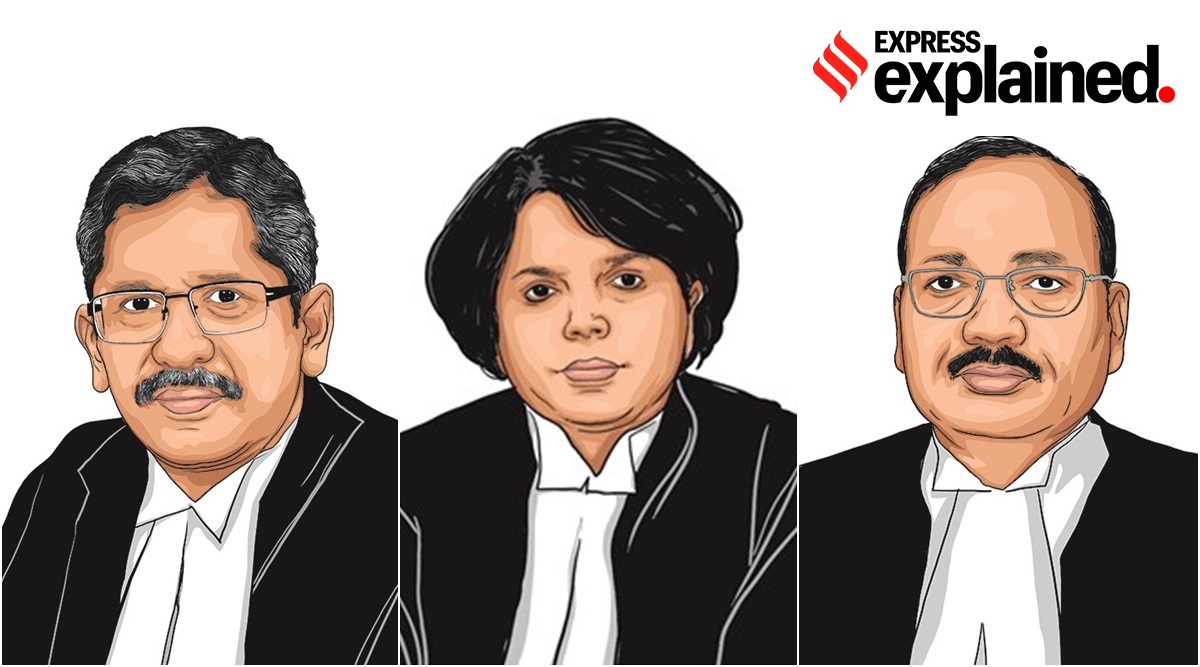[ad_1]
At the heart of his important order on the Pegasus espionage allegations, there are three key imperatives that the Supreme Court highlighted: the right to privacy of citizens; freedom of the press, including the right of journalists to protect their sources; and national security limits as a government alibi to block disclosure of facts related to citizens’ rights.
The bench of three judges, headed by Chief Justice of India NV Ramana, in ordering an investigation by a committee led by former Supreme Court justice RV Raveendran, signaled that his intervention aimed to “defend constitutional aspirations and the rule of law†without being “consumed in (the) political rhetoricâ€.
Regarding the government’s refusal to file a detailed response to the allegations made by the petitioners, the court cited the landmark 2011 black money decision Ram Jethmalani v. Union of India to say that the government “should not take a contradictory position when the fundamental rights of citizens are threatened”.
“This free flow of information from applicants and the state, in summons before the Court, is an important step towards transparency and openness in government, which are values ​​celebrated under our Constitution”, said the court.
The Supreme Court also refused to accept the general national security argument advanced by Solicitor General of India Tushar Mehta when he refused to file a detailed affidavit or respond if the Center had obtained the software. spy.
Indeed, the court pushed the needle to hold the government accountable when it refused to accept the massive use of national security to deny information to the court. In fact, he said that from now on, the government will have to make its case.
“Of course, the Union of Defendants of India can refuse to provide information where constitutional considerations exist, such as those relating to state security, or where there is specific immunity under a specific law. However, the onus is on the state not only to specifically plead such a constitutional concern or statutory immunity, but it must also prove and justify the same in court on affidavit, â€the court said.
That’s not all. The court also rejected the government’s request to set up its own investigation. “Such a plan of action would violate the established judicial principle against prejudice, that is, ‘justice must not only be done, but also be seen to be done,” “he said.
Citing the right to privacy, the court declared that “privacy is not the singular concern of journalists or social activists”.
“In a democratic country governed by the rule of law, indiscriminate espionage of individuals can only be authorized with sufficient statutory guarantees, following the procedure established by law under the Constitution.
The court set six terms of reference for the Raveendran justice committee which range from confirming the use of Pegasus spyware on citizens, details of those involved to whether the government or any other party purchased the spyware to use on citizens and the laws that could have permitted such use. Significantly, these are the same questions the government refused to answer in court.
The tribunal also asked the Raveendran committee to make recommendations on a legal and policy framework to protect citizens from surveillance and to strengthen the country’s cybersecurity.
Significantly, the court also highlighted freedom of the press and the right of journalists to protect their sources as a compelling reason to open the investigation.
“Such a crippling (alleged surveillance) effect on freedom of expression is an attack on the vital role of the public watchdog of the press, which can undermine the ability of the press to provide accurate and reliable information,” he said. declared the court.
“An important and necessary corollary of such a right is to ensure the protection of sources of information. The protection of journalistic sources is one of the fundamental conditions for press freedom. Without such protection, sources could be dissuaded from helping the press inform the public on matters of public interest, â€he added.
Bulletin | Click for the best explanations of the day to your inbox
[ad_2]

